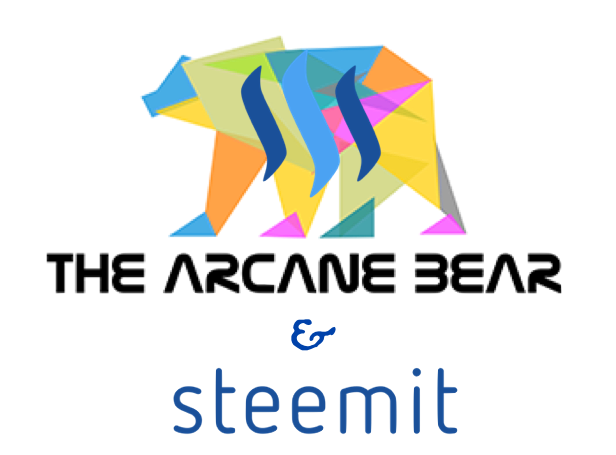Cryptic glossary M-Z
Part 2 of the Cryptic Glossary!

Get to know the terms so you can find your way around the cryptoverse - reference guide
Mining: The process through which transactions are verified and added to a blockchain. It is the process of solving cryptographic problems using computing hardware also triggers the release of cryptocurrencies.
Multi Signature: Multi-signature (multisig) addresses allow multiple parties to require multiple keys to authorize transactions. Multi signature addresses have a much greater resistance to theft.
Off-Ledger Currenc: A currency minted off-ledger and used on-ledger. Ex) using distributed ledgers to manage a national currency.
On-Ledger Currency: A currency minted on-ledger and used on-ledger. Ex) Bitcoin
P2P: Peer-to-peer (P2P) refers to the decentralized interactions that occur between at least two parties in a highly interconnected network. P2P participants deal directly with each other through a single mediation point.
Participant: An actor who can access the ledger to read records or add records
Peer: A person who shares responsibility for maintaining the identity and integrity of the ledger.
Permissioned Ledger: A permissioned ledger is a ledger where people must have permission to access the ledger. Permissioned ledgers may have one or many owners. When a new record is added the ledger's integrity is checked by a limited consensus process carried out by trusted actors
Private Currency: A currency issued by a private individual or firm, typically secured against uninsured assets.
Private Key: A private key is a string of data that shows you have access to bitcoins in a specific wallet. Private keys can be thought of as a password and must never be revealed to anyone because they allow you to spend the bitcoins from your bitcoin wallet through a cryptographic signature.
Proof-of-Stake: An alternative to the proof-of-work system, in which your existing stake in a cryptocurrency (the amount of that currency that you hold) is used to calculate the amount of that currency that you can mine.
Proof-of-Work: A system that ties mining capability to computational power. Blocks must be hashed, which is an easy computational process so an additional variable is added to the hashing process to make it more difficult. When a block is successfully hashed, the hashing must have taken some time and computational effort. Thus, a hashed block is considered proof of work.
Replicated Ledger: A ledger with one master copy of the data, and many copies.
Script: An alternative proof of work system to SHA-256, designed to be particularly friendly to CPU and GPU miners, while offering little advantage to ASIC miners.
SHA 256: The cryptographic function used as the basis for bitcoin’s proof of work system.
Smart Contracts: Smart contracts are contracts whose terms are recorded in a computer language instead of legal language. Smart contracts can be automatically executed by a computing system, such as a distributed ledger system.
Tokenless Ledger: A tokenless ledger refers to a distributed ledger that doesn’t require a native currency to operate.
Transaction Block: A collection of transactions on the bitcoin network, gathered into a block that can then be hashed and added to the blockchain.
Transaction Fee: A small fee imposed on some transactions sent on the bitcoin network. The transaction fee is awarded to the miner who successfully hashes the block containing the relevant transaction.
Unpermissioned ledger: Unpermissioned ledgers such as Bitcoin have no single owner — they cannot be owned. The purpose of an unpermissioned ledger is to allow anyone to contribute data to the ledger and for everyone in possession of the ledger to have identical copies. This creates censorship resistance, which means that no one can prevent a transaction from being added to the ledger. Participants maintain the integrity of the ledger by reaching a consensus about its state
We hope this is helpful and a good reference point!
SELF PROCLAIMED STEEMIT AMBASSADOR
For Best Results: Resteem, Upvote, Follow and Comment
Buen post, sigo tu canal de youtube, sobre todo por el tema de los gráficos y para la información aunque lamentablemente mi Ingles es limitado, sería bueno que pudieras poner información sobre los últimos acontecimientos por aquí, así lo podría traducir mejor, muchas gracias y enhorabuena por tu canal, trataré de darle publicidad y así hacer que más gente se beneficie.
Downvoting a post can decrease pending rewards and make it less visible. Common reasons:
Submit
good stuff mate thanks for taking the time to put this together :)
Downvoting a post can decrease pending rewards and make it less visible. Common reasons:
Submit
No problem! the more people who understand the better
Downvoting a post can decrease pending rewards and make it less visible. Common reasons:
Submit
Thank you for Posting @thearcanebear
Downvoting a post can decrease pending rewards and make it less visible. Common reasons:
Submit
Thank you!
Downvoting a post can decrease pending rewards and make it less visible. Common reasons:
Submit
@thearcanebear This desires somewhat more time and energy to Assume about. Pleasant you provide it from a unique angle. Mhhh not really easy... and it absolutely was by now Quite challenging. Many thanks for let's Assume.
Downvoting a post can decrease pending rewards and make it less visible. Common reasons:
Submit
Just for reference
Downvoting a post can decrease pending rewards and make it less visible. Common reasons:
Submit